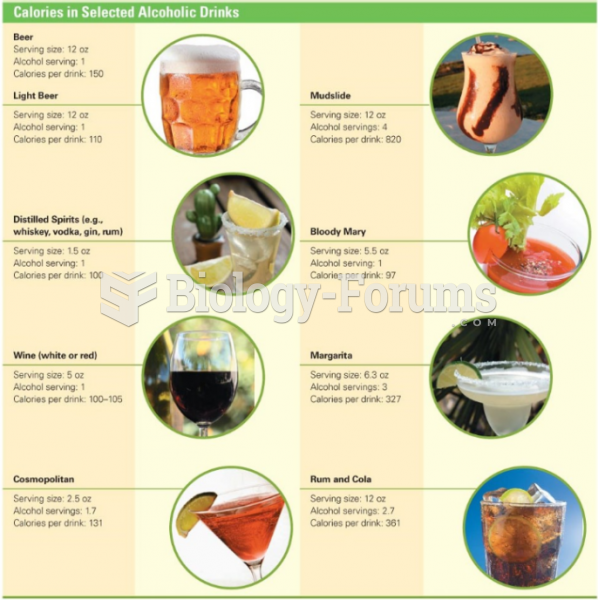Answer to Question 1
Alcoholism has long been assumed to be caused by both environmental and genetic factors. There has been considerable controversy in recent years, however, concerning the alcoholism gene theory. Alcoholism has been found to run in families. In addition, children of alcoholic (biological) parents who are adopted at an early age have a significantly higher chance of becoming alcoholic than do children in the general population. Biological research has primarily focused on the role of genetics in predisposing an individual to drug use. Research suggests that persons who experience severe early-onset alcoholism may be genetically predisposed.
Mooney, Knox, and Schacht note: Biological theories of drug use hypothesize that some individuals are physiologically predisposed to experience more pleasure from drugs than others and, consequently, are more likely to be drug users. According to these theories, the central nervous system, which is composed primarily of the brain and spinal cord, processes drugs through neurotransmitters in a way that produces an unusually euphoric experience. Individuals not so physiologically inclined report less pleasant experiences and are less likely to continue use.
Answer to Question 2
Students' answers may vary.
Social patterns influence people to drink in a wide variety of situations, such as at happy hours, before and after dinner, and at parties. There are also individual reasons for drinking. Some people drink because alcohol acts as a social lubricant, relaxing them so that they feel more at ease interacting with others. Some drink simply to relax. Others use alcohol as a kind of anesthetic, to dull the pain of living and to take their minds off their problems. Some excessive drinkers seek a continual buzz to avoid facing life. Others drink occasionally to get high. Some insomniacs drink so that they will sleep (often they pass out). Drinking before a flight is common for persons with a fear of flying because alcohol has a tranquilizing effect. Also, people often drink to temporarily get rid of unwanted emotions such as loneliness, anxiety, depression, feelings of inadequacy, insecurity, guilt, and resentment.







